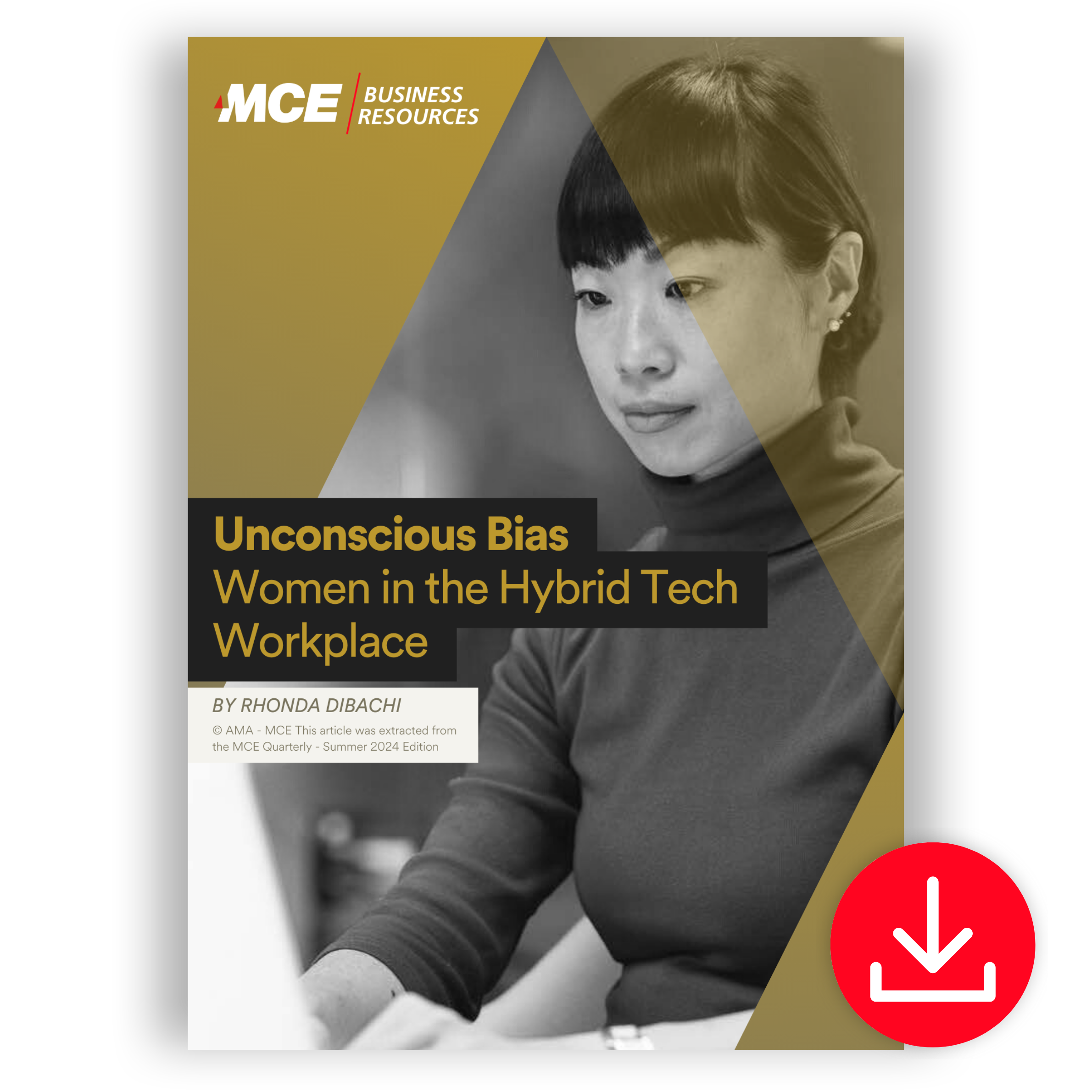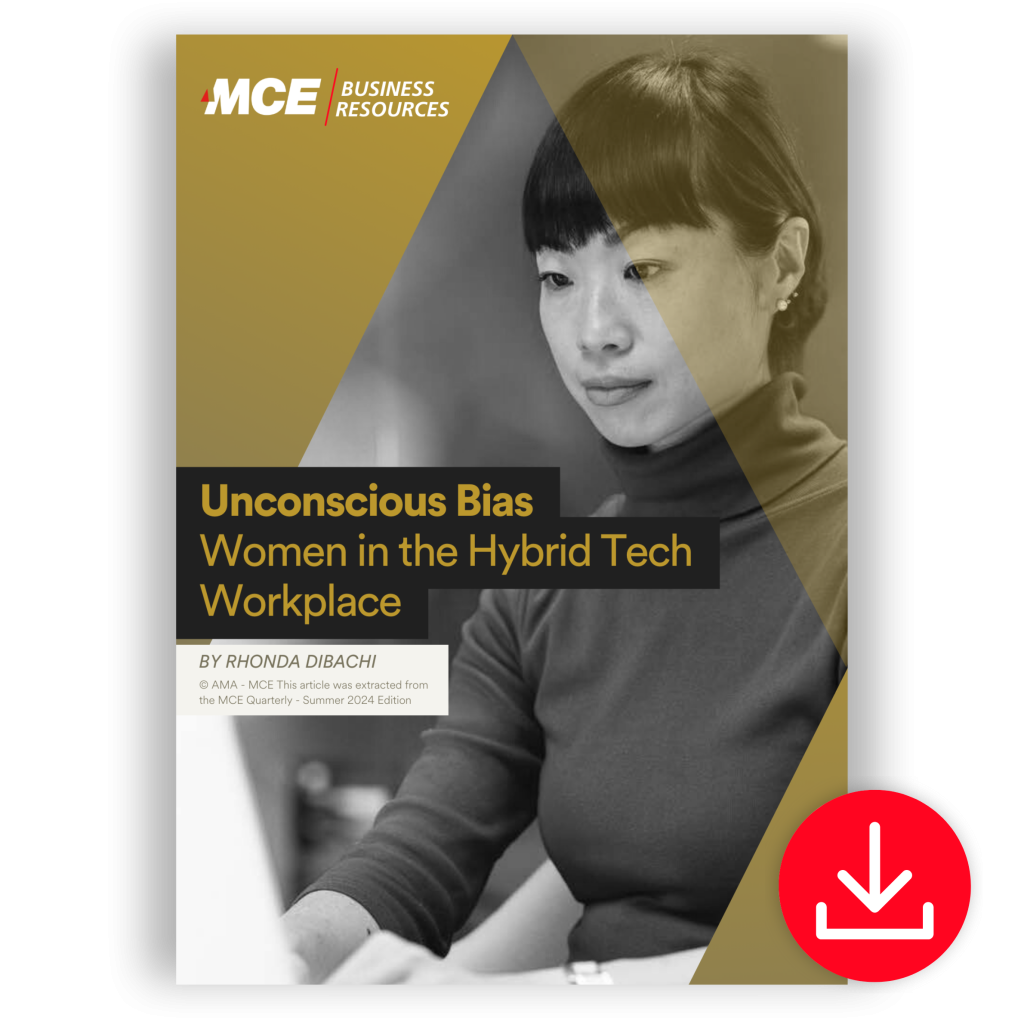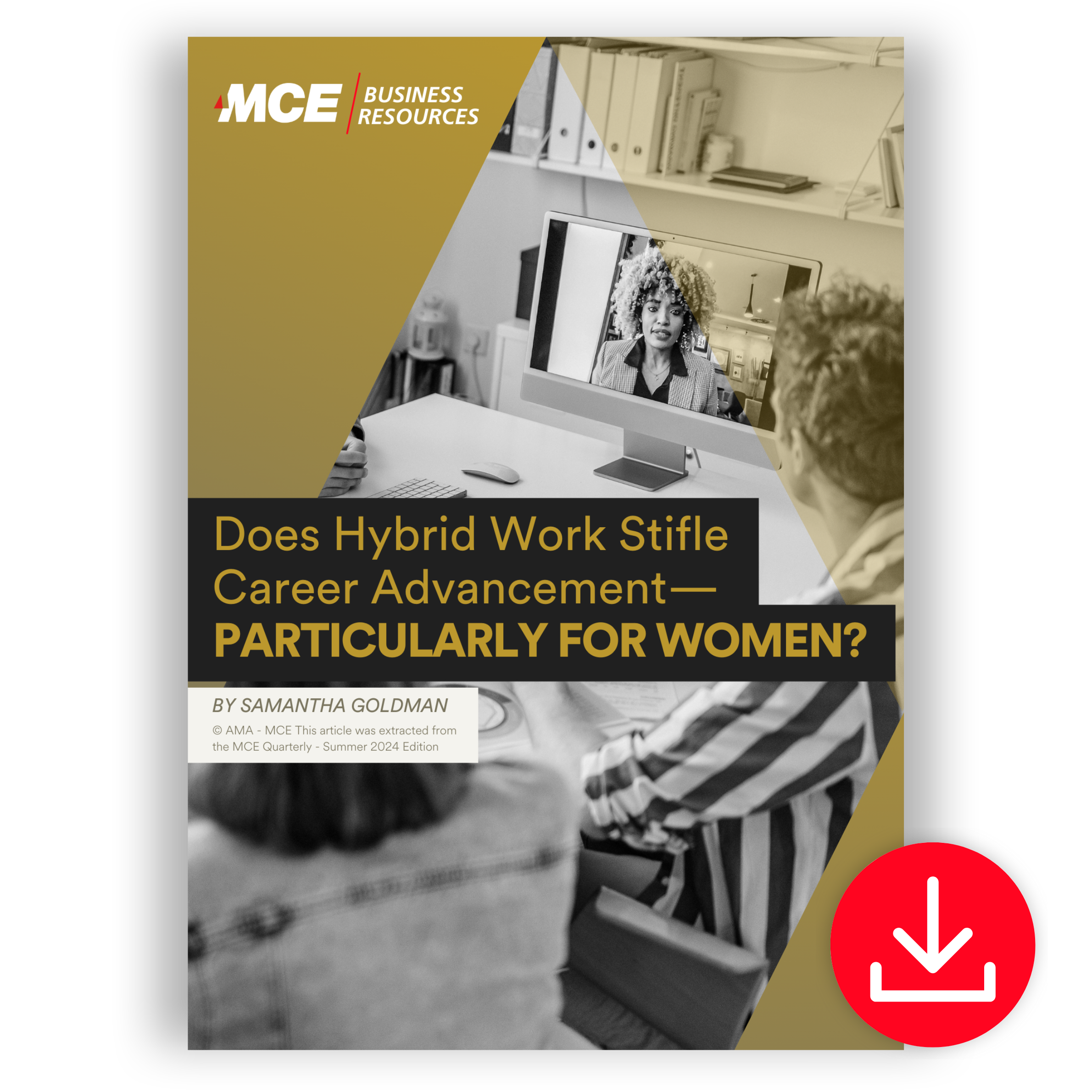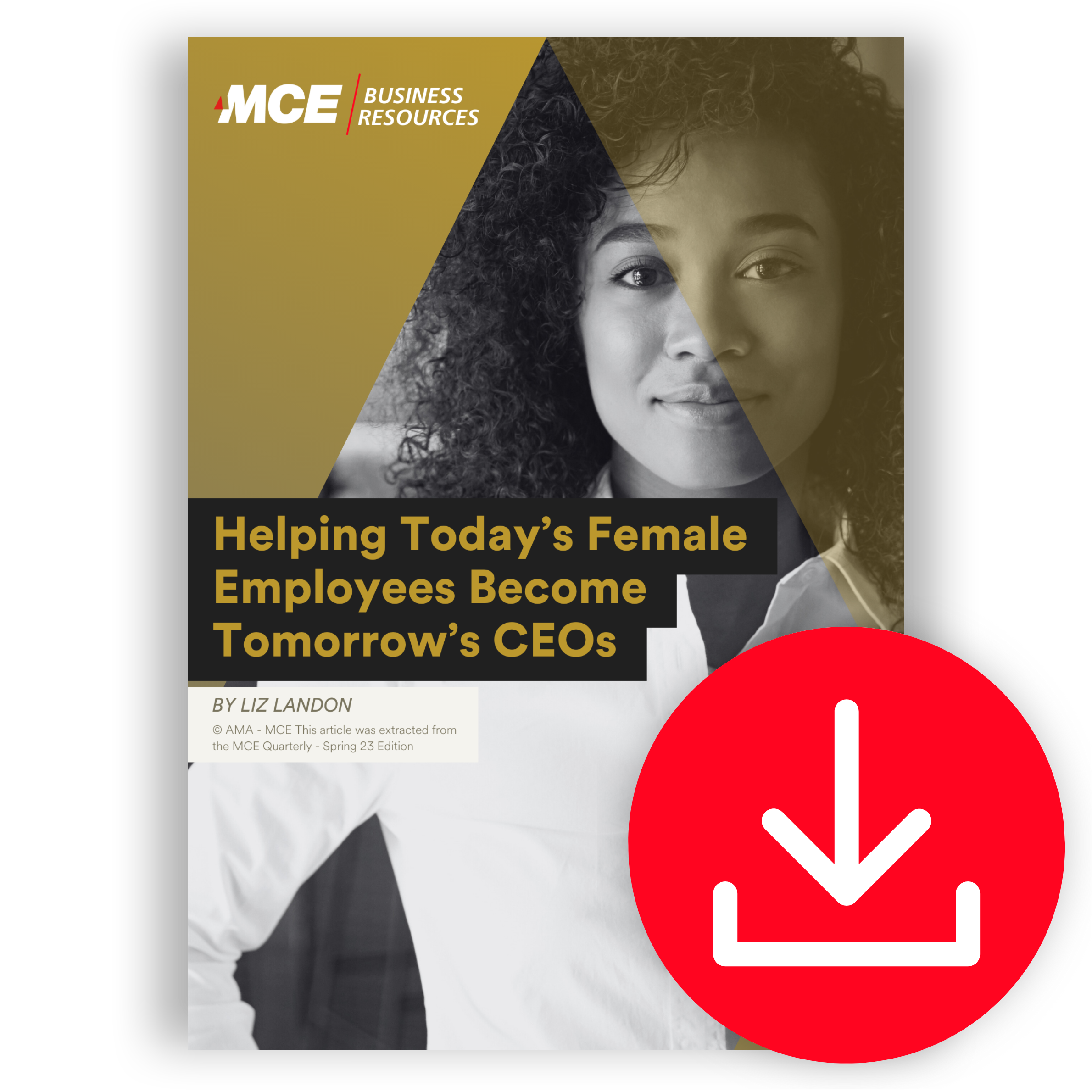
In the technology industry, unconscious gender bias has been and continues to be an unspoken, persistent issue.
This article focuses on how hybrid work models can be leveraged by women in tech today to mitigate these biases, based on my own observations and research. With the generational changes in the perception of women in tech, confronting these biases head-on can be counterproductive and relying on company edicts is naive, especially in environments where such issues are not openly acknowledged. The tech workspace is notorious for just such an environment.
UNCONSCIOUS BIAS IN THE TECH WORKFORCE
In the tech industry, a persistent undercurrent of conscious and unconscious gender bias has long been a problem. It used to be overt, but in the face of increased workplace regulations to protect women, it has gone underground in the last several decades. This is a subtle bias, affecting opportunities and advancement for women in a field traditionally dominated by men. Hybrid work models, which have been introduced since the pandemic, are a significant shift in workplace dynamics. This new work model can be used by women in tech to improve their work experience, gain better career advancement opportunities, and reduce the hazardous effects of unconscious gender bias. It seems the perfect juncture, providing flexibility to women while allowing them to fully participate in the work environment. The hybrid model can give women in tech a potential new tool to minimize the triggers their presence can sometimes cause. But it also brings new opportunities for gender bias to harm a woman’s career.
My insights into this issue stem from a career spanning decades in tech, where I have experienced firsthand both the blunt-force trauma of overt misogyny in the workplace as well as the subtle oppression of unconscious bias. As a young woman working at a nuclear power plant in Limerick, Pa., I saw and experienced gender bias. It was blatantly obvious. As the sole woman engineer among dozens, I often heard men questioning the intellectual capabilities of women in engineering. This overt skepticism about women’s place in tech persisted well into
the 1990s, with debates in tech magazines openly questioning whether women even “belong” in IT or computer science. Over the years, there has been a slow yet perceptible shift in these perceptions. The blatant bias of earlier decades has morphed into the more subtle discrimination of unconscious bias.
Download the full article to know more.
Download Full Article Now
About Writer
Rhonda Dibachi is the co-founder and chief executive officer of HeyScottie, an artificial intelligence-powered platform delivering superior sourcing options for manufacturing finishing services. She started her career as a nuclear engineer and is now a champion for AI and sustainability in the manufacturing sector.






